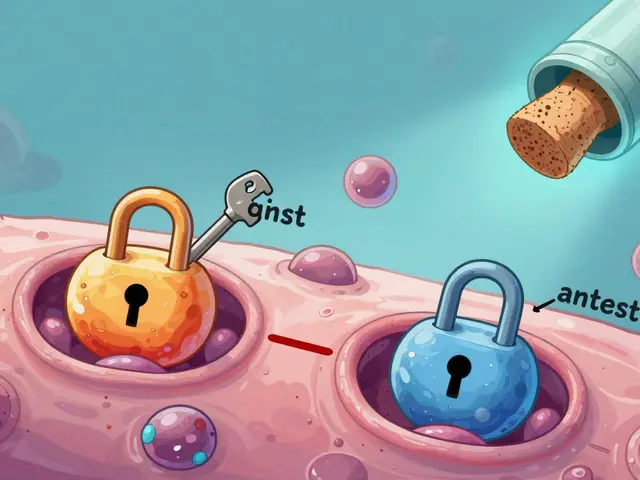Kaposi Sarcoma — September 2024: Practical Info for the LGBTQ+ Community
Did you notice a purple or brown spot that won’t go away? That’s the kind of thing our September post focused on. We broke down Kaposi Sarcoma (KS) in plain language so you know what to watch for and what helps.
What you need to know right away
Kaposi Sarcoma is a cancer linked to human herpesvirus 8 (HHV-8). It most often shows up as skin lesions that look purple, red, or brown, but it can affect the mouth, lymph nodes, and internal organs too. People with weakened immune systems — especially those with untreated HIV — are at higher risk. The good news: modern HIV treatment lowers the chance of KS and can make existing lesions improve.
How do you know it’s KS? A doctor will usually do a biopsy of a suspicious spot. That confirms the diagnosis. Imaging or endoscopy may follow if internal organs are suspected to be involved. Don’t ignore new spots, swelling, persistent mouth sores, or unexplained cough or belly pain — those are reasons to get checked.
Treatment options and what they do
Treatment depends on where KS is and how much it’s affecting you. If you have HIV, starting or optimizing antiretroviral therapy (ART) is often the first and most important step. For skin or mouth lesions that bother you, local treatments like radiation or topical medications can help. For more widespread disease, doctors commonly use chemotherapy — liposomal doxorubicin is a frequently used option — or immunotherapy in certain cases.
Side effects vary by treatment, so ask about what to expect and how symptoms will be managed. If the lesion is painful, bleeding, or causing functional problems (for example, difficulty eating or breathing), treatment moves faster. Coordination between an HIV specialist, oncologist, and your primary care provider gives the best outcomes.
Mental health matters too. Facing a cancer diagnosis — even one linked to a virus — can bring anxiety and stigma. Reach out to LGBTQ+ health centers, support groups, or counselors who understand these specific concerns.
Practical steps you can take now: get regular HIV testing if you’re sexually active, start ART promptly if you test positive, and see a clinician about any unexplained skin or mouth changes. Use barrier protection and talk to partners about testing. If you’re on medicines that suppress the immune system for other reasons, discuss KS risk with your doctor.
The September article on KiwiDrug.com aimed to give clear, usable advice: recognize possible signs early, confirm with a biopsy, treat underlying immune issues, and use targeted treatments when needed. If you want links to local clinics, testing sites, or community groups, check the original post for resources and contact info. Stay curious about your health and don’t wait to get checked when something feels off.

Understanding Kaposi Sarcoma in the LGBTQ+ Community: An In-Depth Analysis
Kaposi Sarcoma is a type of cancer that has significant implications for the LGBTQ+ community. This article takes a closer look at the disease, its impact, and how individuals can protect their health. It provides valuable insights, interesting facts, and practical tips for understanding and dealing with Kaposi Sarcoma.
read more




